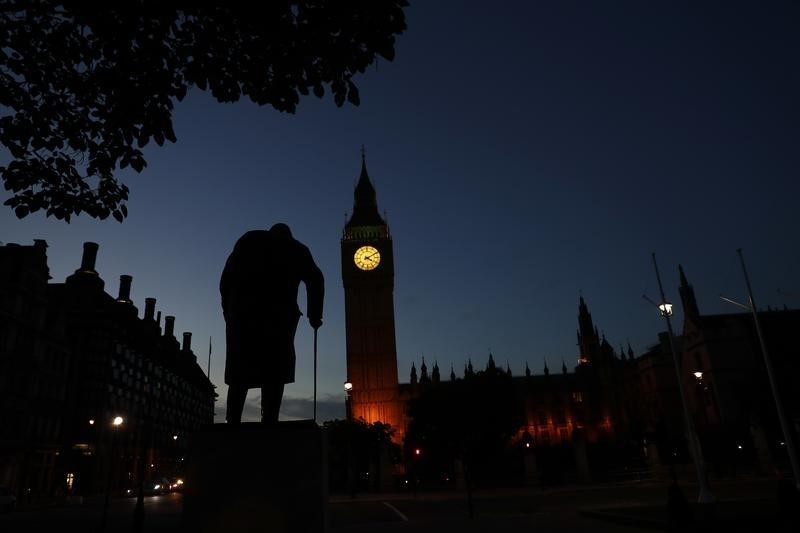By Geoffrey Smith
Investing.com -- The rout in sterling and U.K. bond markets worsened on Monday as investors took fright at the new government's sweeping and unfunded tax cuts.
By mid-morning in London, yields on U.K. Gilts had soared as markets priced in more interest rate hikes from the Bank of England in response to a mini-budget seen by most analysts as inflationary. Expectations of a strong monetary policy reaction helped the pound to recover most of the ground it lost at the opening, when it fell to a new all-time low against the dollar.
The moves came after the Chancellor of the Exchequer, Kwasi Kwarteng, said on Sunday that there was "more to come" from the government, on top of the 161 billion pound ($173 billion) tax giveaway announced on Friday.
Analysts called the moves a damning judgment on the new government's change of course, which reversed the drift toward higher taxation and budget deficit reduction under Boris Johnson.
"The U.K. government has planted a forest of magic money trees and the bond market has taken a chainsaw to them all," said Paul Donovan, chief economist with UBS Global Wealth Management, in a morning briefing.
The moves sent shock waves through bond markets worldwide in early trading in Europe on Monday, raising fears that the U.K's distress may be a sign of broader things to come for advanced economies as they struggle to contain the consequences of this year's energy price shock. The tax cuts announced by Kwarteng on Friday are, in fact, smaller than the estimated cost of the energy subsidies for businesses and households that he announced over the course of last week.
By 05:35 ET (09:35 GMT), the yields on benchmark 2-Year and 5-year Gilts were up half a percent at 4.49% and 4.56%, respectively, while the benchmark 10-year Gilt yield was up 34 basis points at 4.17%.
"While the collapse in sterling grabs the headlines, it is the abrupt rise in borrowing costs that really matters," Donovan said, arguing that the rout explodes the claims of so-called 'Modern Monetary Theory', which encourages higher government borrowing in the belief that the state has all the tools necessary to control the inflation which that generates.
"Modern Monetary Theory has been taken into a dark corner by the bond markets and been convincingly beaten up," Donovan said.
Others warned that the market may be expecting too much from the Bank of England, which said last week that it didn't expect to adjust its own policy again until its meeting in November. Governor Andrew Bailey had acknowledged that the mini-budget, which was announced after the BoE's half-point rate increase on Thursday, would have the potential to materially alter the outlook for growth and inflation.
"We think markets are overestimating the chance that Governor Bailey will call an emergency meeting this week," said Pantheon Macroeconomics' Samuel Tombs in a note to clients. "Bailey likely will be concerned that an emergency hike triggered by financial market movements will set an unhelpful precedent; predictability is valuable."
He added that the Bank is already under political pressure - Prime Minister Liz Truss had mooted ending its independence during her campaign for the Conservative Party leadership during the summer - and that it may not want to antagonize the government with a move that would be interpreted as an open challenge to its authority.
Consequently, Tombs warned that the pound is likely to slide further in the near term.
